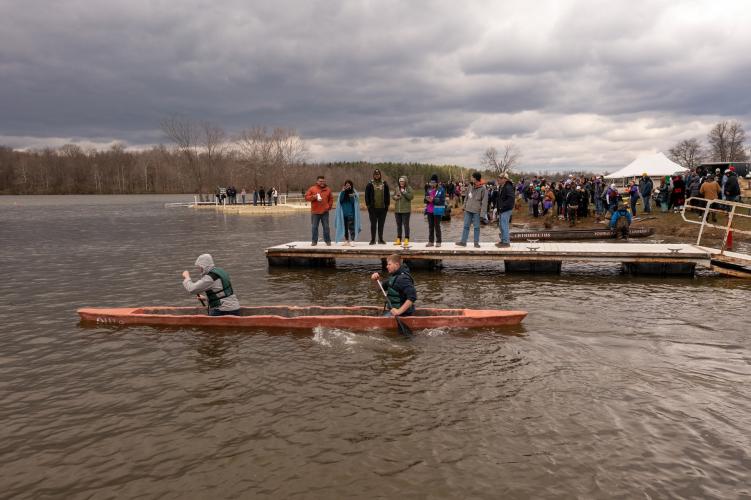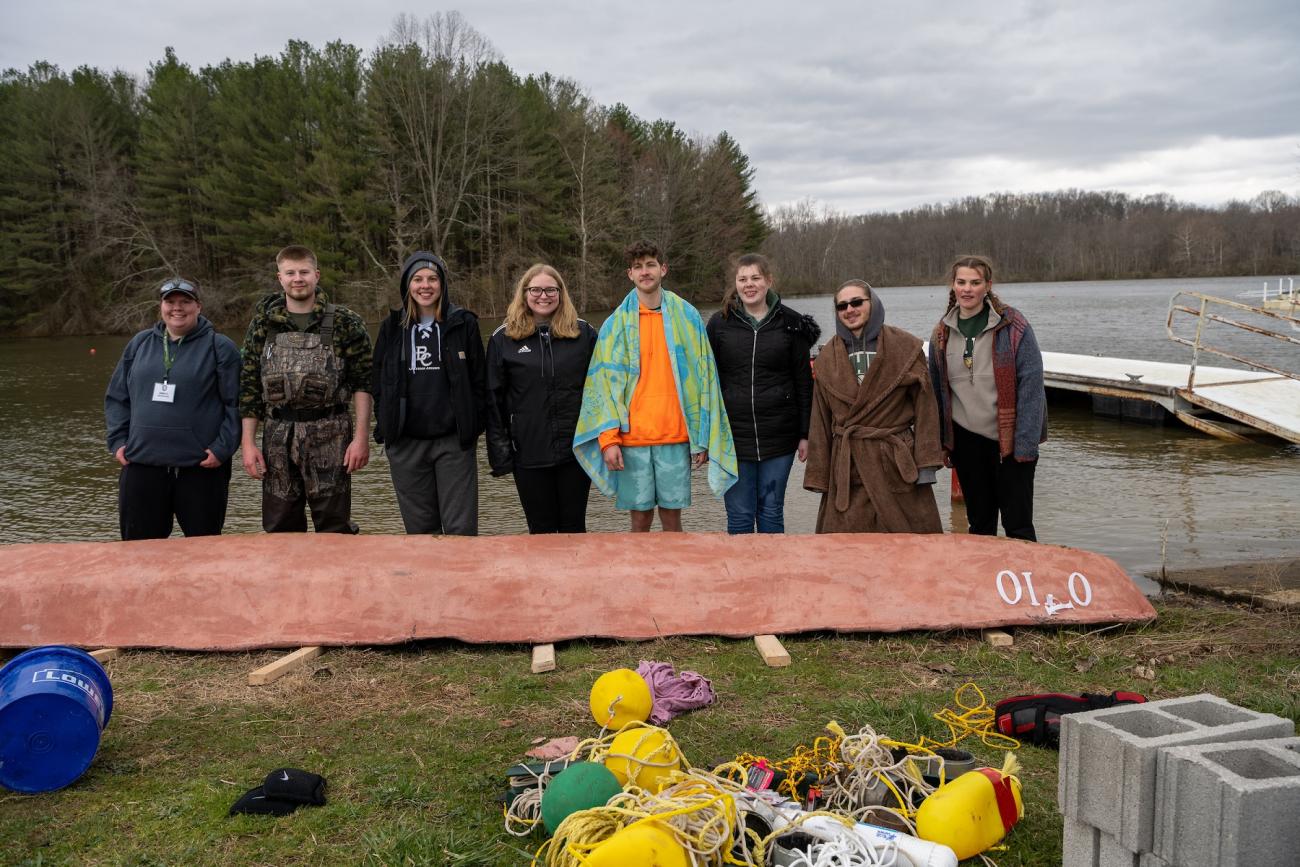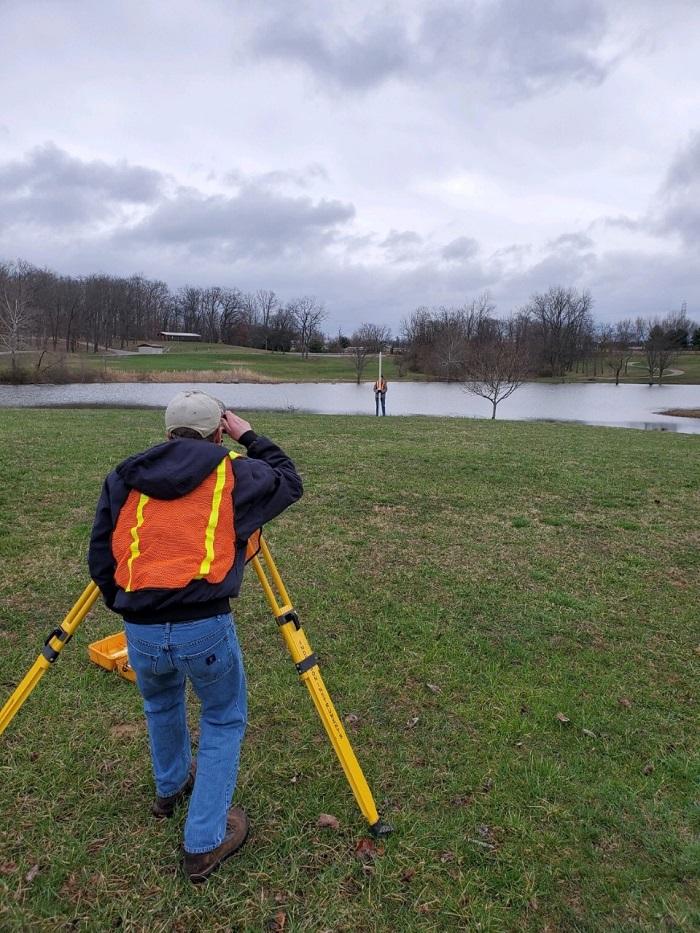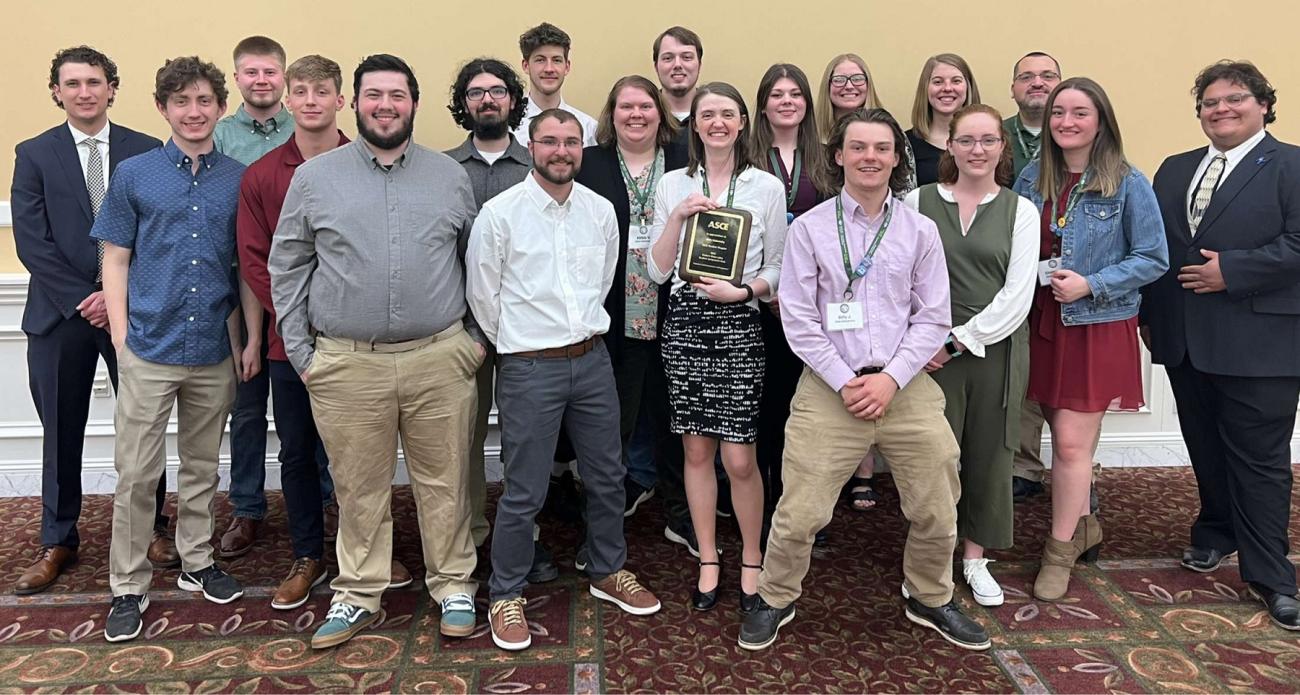

After a two-year hiatus caused by the pandemic, the American Society of Civil Engineers (ASCE) Student Symposium was hosted by Ohio University on March 31 through April 2, 2022. The Ohio University team earned first place in surveying and the technical paper categories. Beyond their wins, planning the symposium was a major triumph for the students and faculty involved with the event.
“It really meant a lot for us to host this event. Like everything else, the Spring 2020 events were cancelled, and the 2021 events were virtual. For the older students, the 2022 Symposium was a chance to 'finish what was started' in 2020. For the younger students, this was their first opportunity to experience the event held in-person. It was extremely gratifying to be able to give both groups of students a fulfilling experience,” said Ben Sperry, associate professor and the faculty advisor for OHIO’s ASCE chapter.
Liz Myers, a graduate student in civil engineering, embraced a role as the student chair for the event. She worked alongside Sperry to plan the symposium. They welcomed 13 university teams across the Eastern Great Lakes Region totaling about 250 students.
“I was involved [in the ASCE Symposium] before COVID and there weren’t many students who knew what a symposium looked like prior to the pandemic,” said Myers thinking about the importance of embracing her role as the student lead on the project.
Myers worked alongside a team of eight undergraduate students, including Sophia Barry as the event’s co-chair, who helped plan merchandising, meetings, catering and venue booking. Meanwhile, Sperry organized event sponsors, judges and volunteers. As a team, they began planning the event without the certainty that they would even be able to host the symposium in person due to the social distancing and travel restrictions.
“There was a moment about a month before the event when I realized it was really happening. There were times while planning that we knew that (the pandemic) could yank it out from under us, but things were starting to get better. Everything was coming together,” said Myers.
When the planning team was finally able to welcome visitors to campus, spirits were high and the general competitive nature of the symposium had waned. People were just excited to be able to participate in person in events like the concrete canoe, the surveying and the steel bridge competitions.
“It was amazing seeing the civil engineering students coming together. The feeling of pride when presenting to the judges, racing the canoe or setting up the instruments cannot be achieved virtually. Overall, the symposium was a great time, especially being able to meet so many different students from other schools, face to face,” said Garrett Spargur, fourth-year civil engineering student.
“On Friday, during the concrete canoe races, our canoe sunk in the water. One of our members put his fists in the air while the boat sank, and we all laughed and cheered. We weren’t there to win the competition, just to have a good time,” said Myers.
Myers also reflected on the general feeling of camaraderie during the event. She noted that in previous years, visiting schools did not generally collaborate with one another due to the nature of the competitive spirit. This year was different, however. Myers invited leaders from each school to a banquet to celebrate their successes, but also engage in a thoughtful discussion about how to improve each respective chapter of ASCE amid the pandemic.
“When Liz Myers facilitated the discussion to share ideas on best practices and other ways to improve our organizations, I think everyone left the event with renewed energy and enthusiasm for student leadership,” said Sperry.
“I wanted to lift the veil of competitiveness. We are all out for the same thing — to make better engineers. These are the people I am going to work with someday,” said Myers about that discussion.
The OHIO team celebrated these moments of vulnerability with students from other schools and enjoyed the opportunity to engage in hands-on experiences that allowed them to practice civil engineering. Fortunately, they were able to showcase their skills and earn first place in both surveying and in the technical paper.
“This year's survey team was a very good mix of younger and older students. My favorite memory is being able to see my team grow and learn while having fun. We did not go into the competition expecting to win, but to enjoy ourselves and see what we could do,” said Spargur, captain of the surveying team.
Spargur also led the successful presentation of the technical paper, which was to assess the impact of the change in the ASCE Code of Ethics on the civil engineering profession. While writing the paper and formulating the argument is important, the key to success is being able to affectively present the argument to the judges.
“I was able to confidently defend my paper while not contradicting myself or the ethical principles outlined in the Code. The one of the most important skills of an engineer is to present themselves professionally and confidently,” said Spargur.
As a result of their wins at the Symposium, the OHIO team will compete in surveying at the national level in the summer 2022.
“As a team, we are looking forward most to competing against the other teams and seeing what we can do," Spargur said. "We have high hopes for the competition and cannot wait!”




